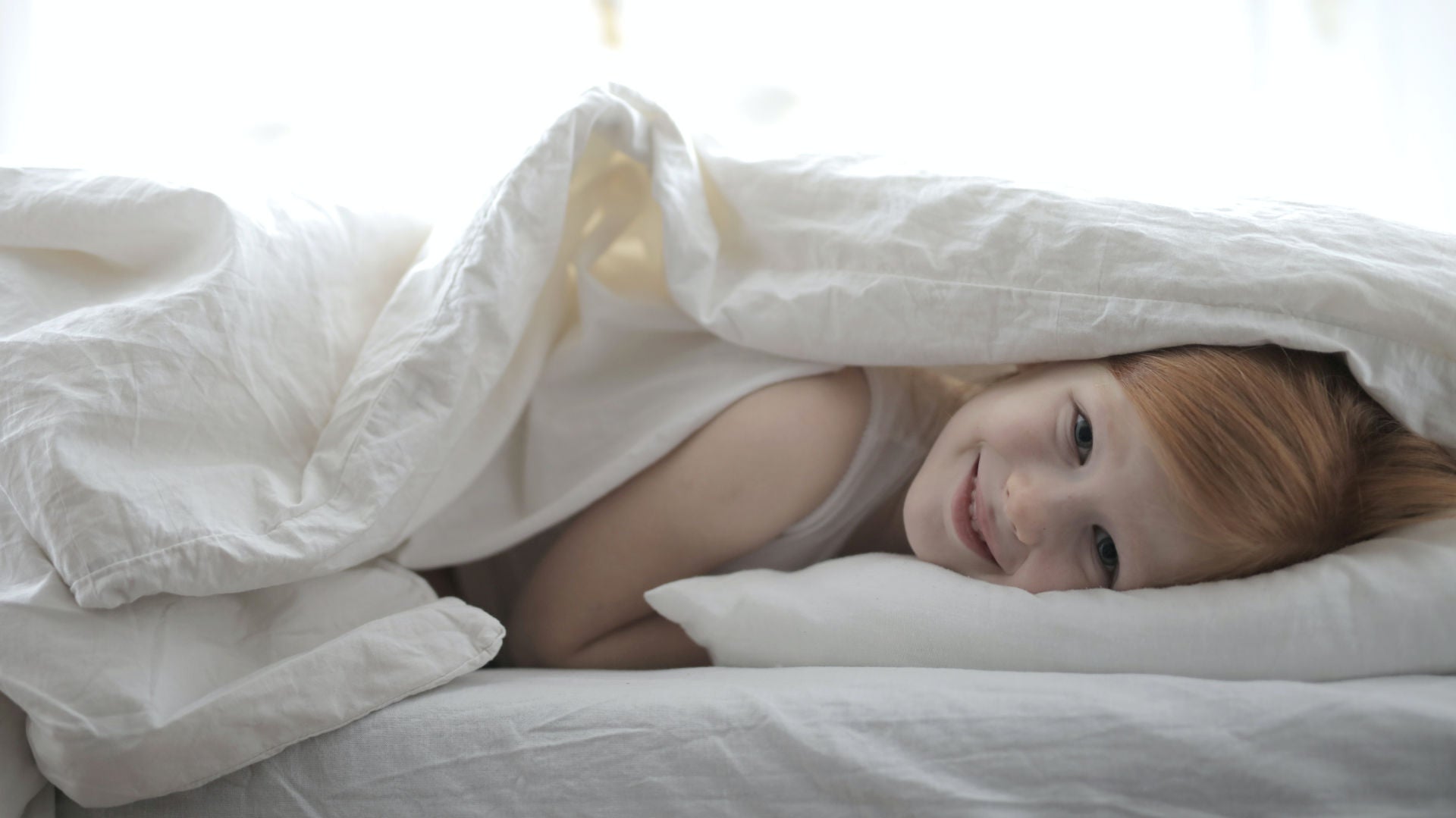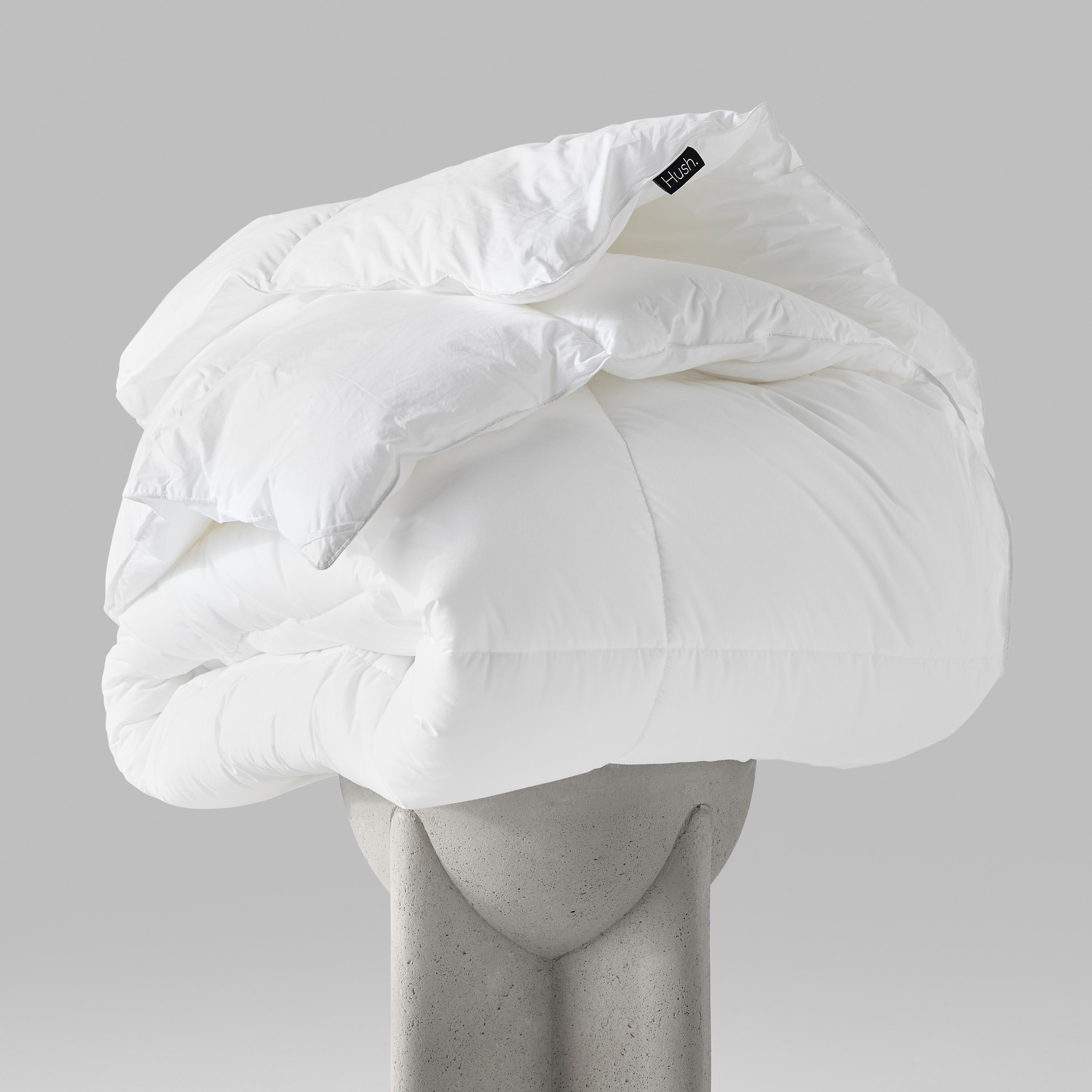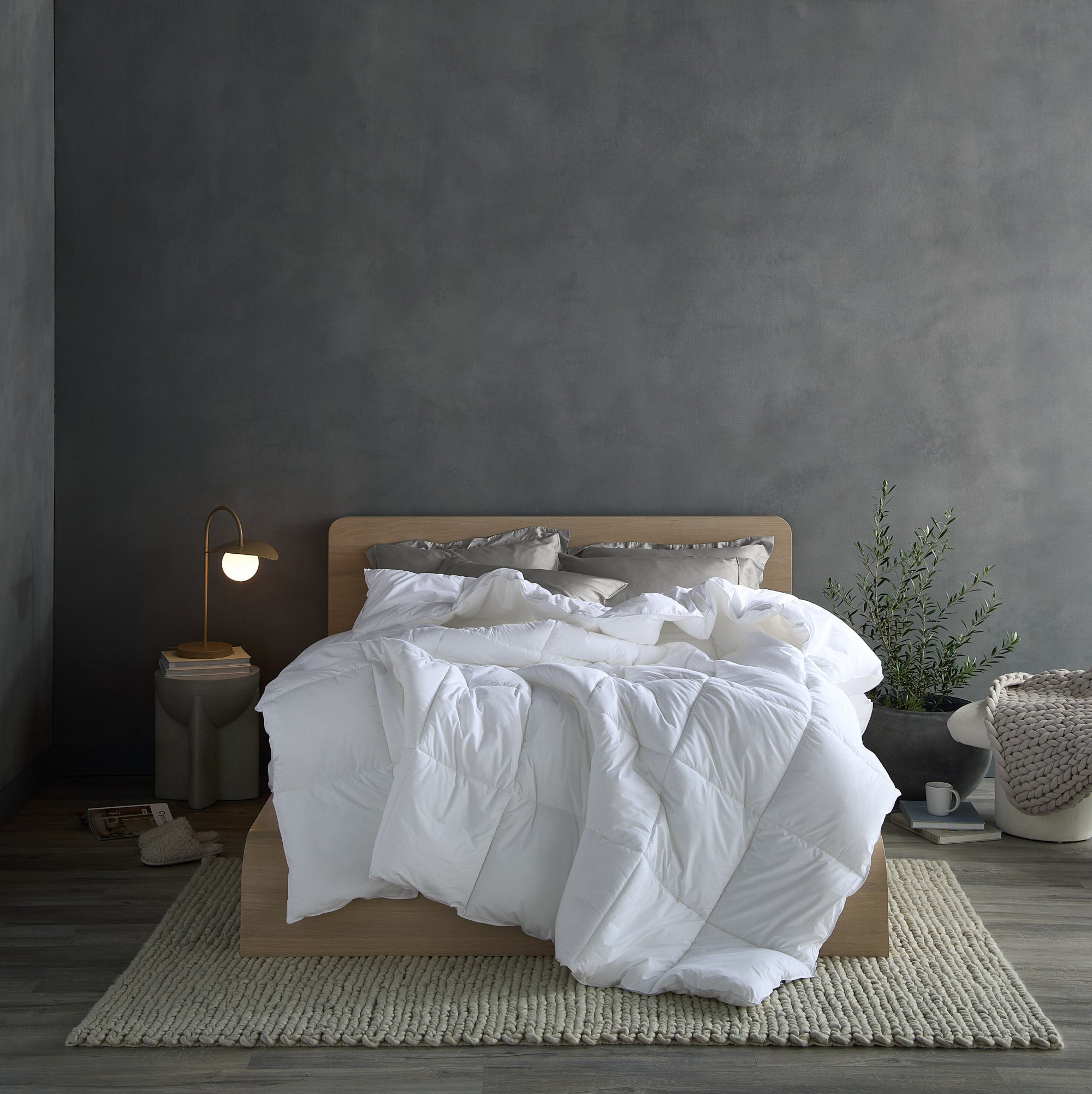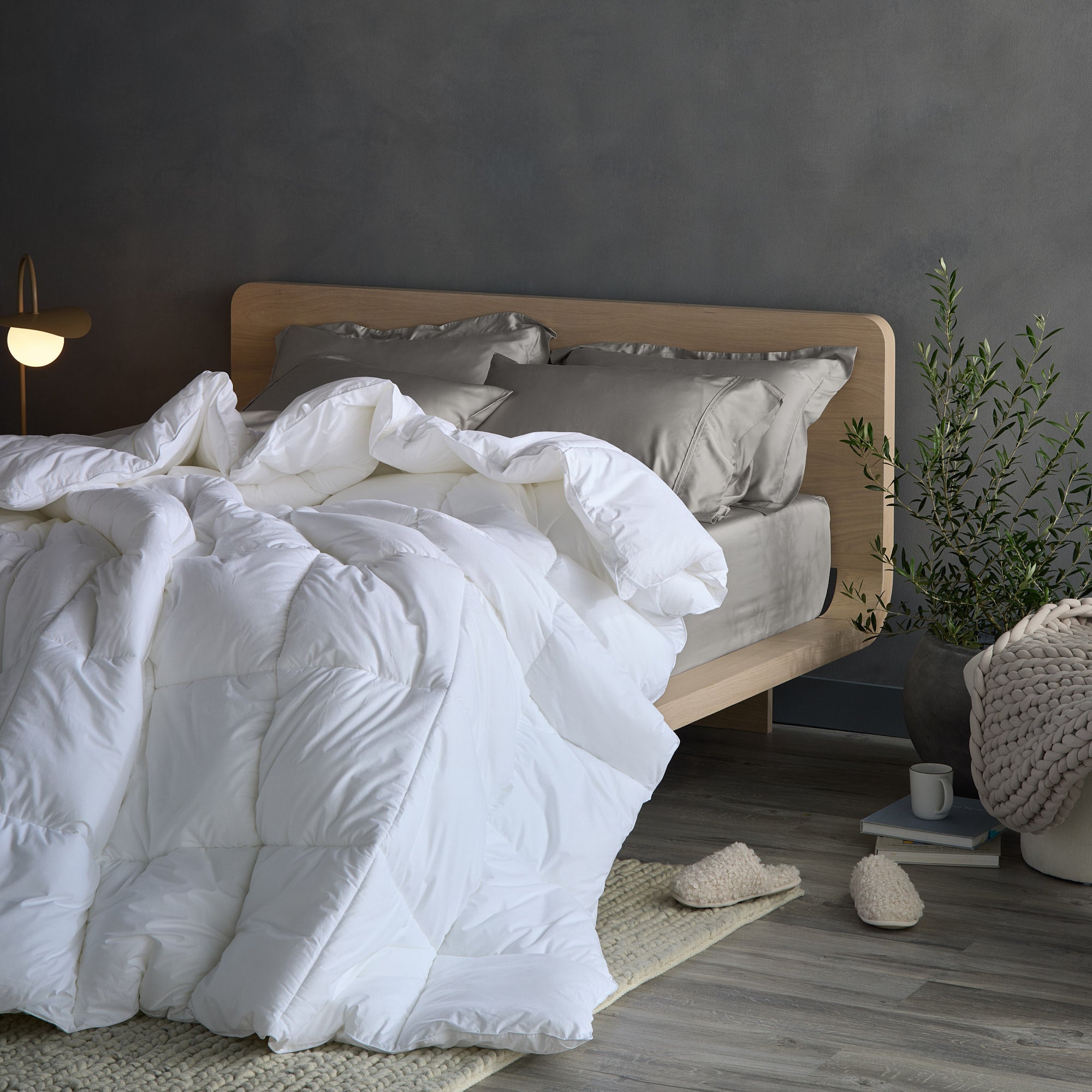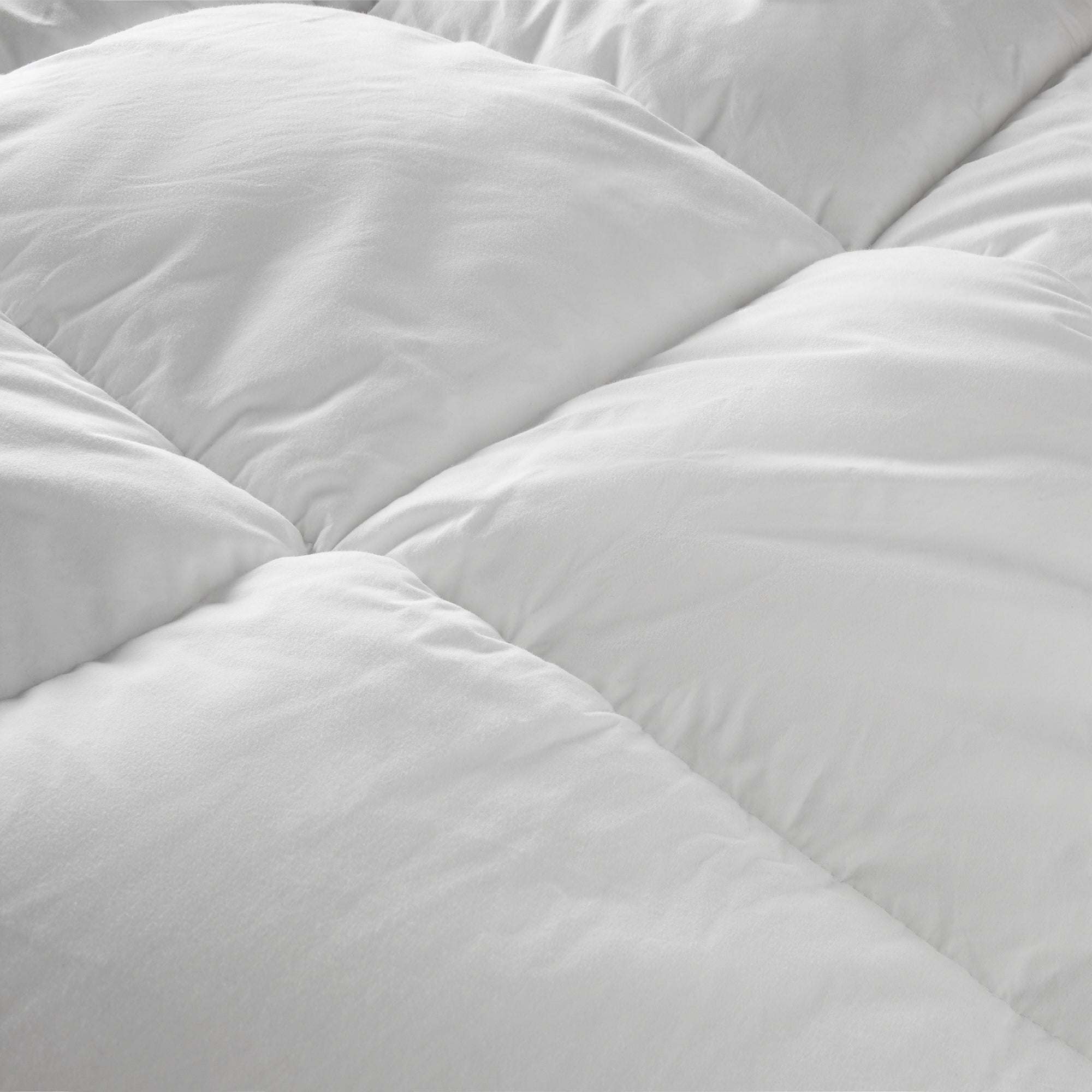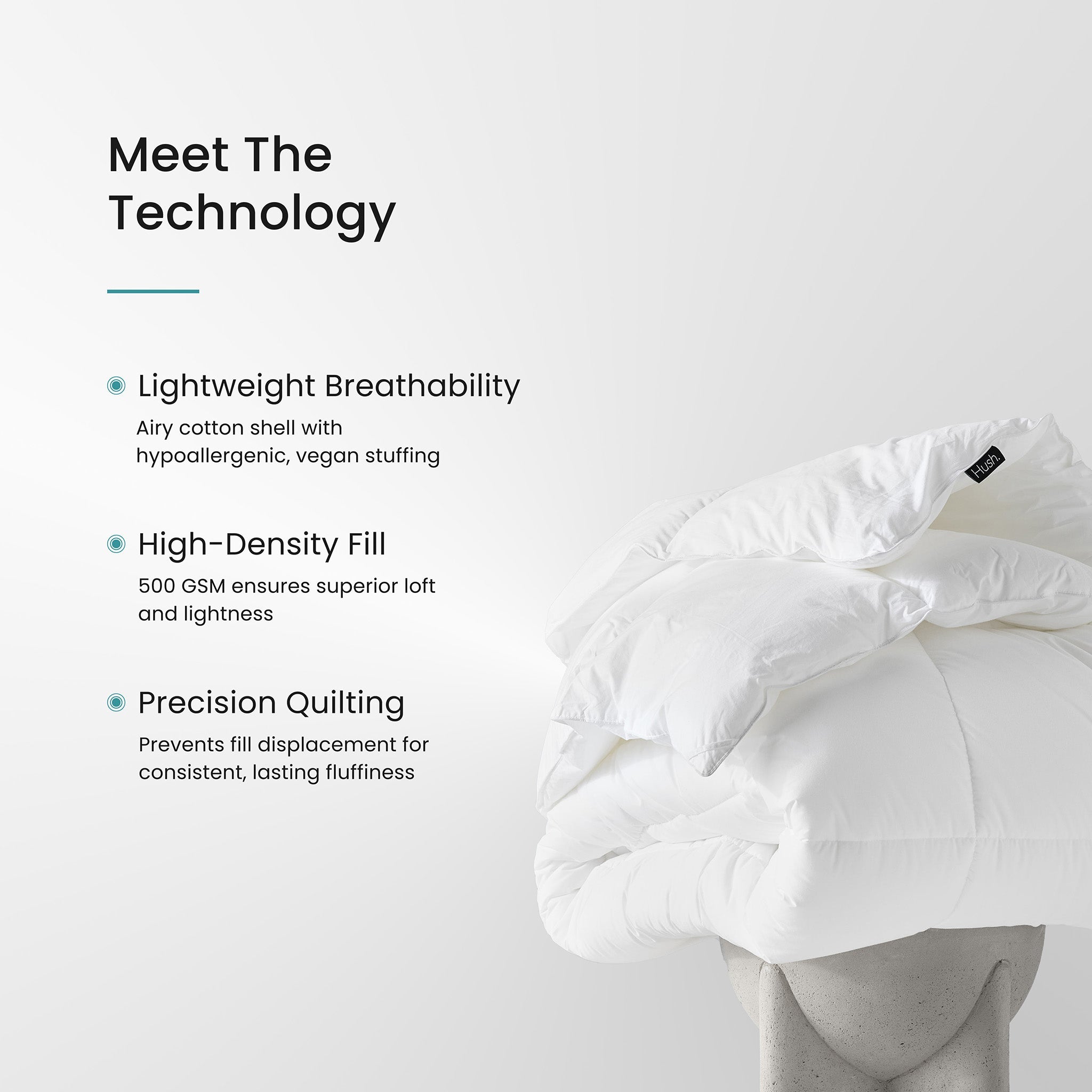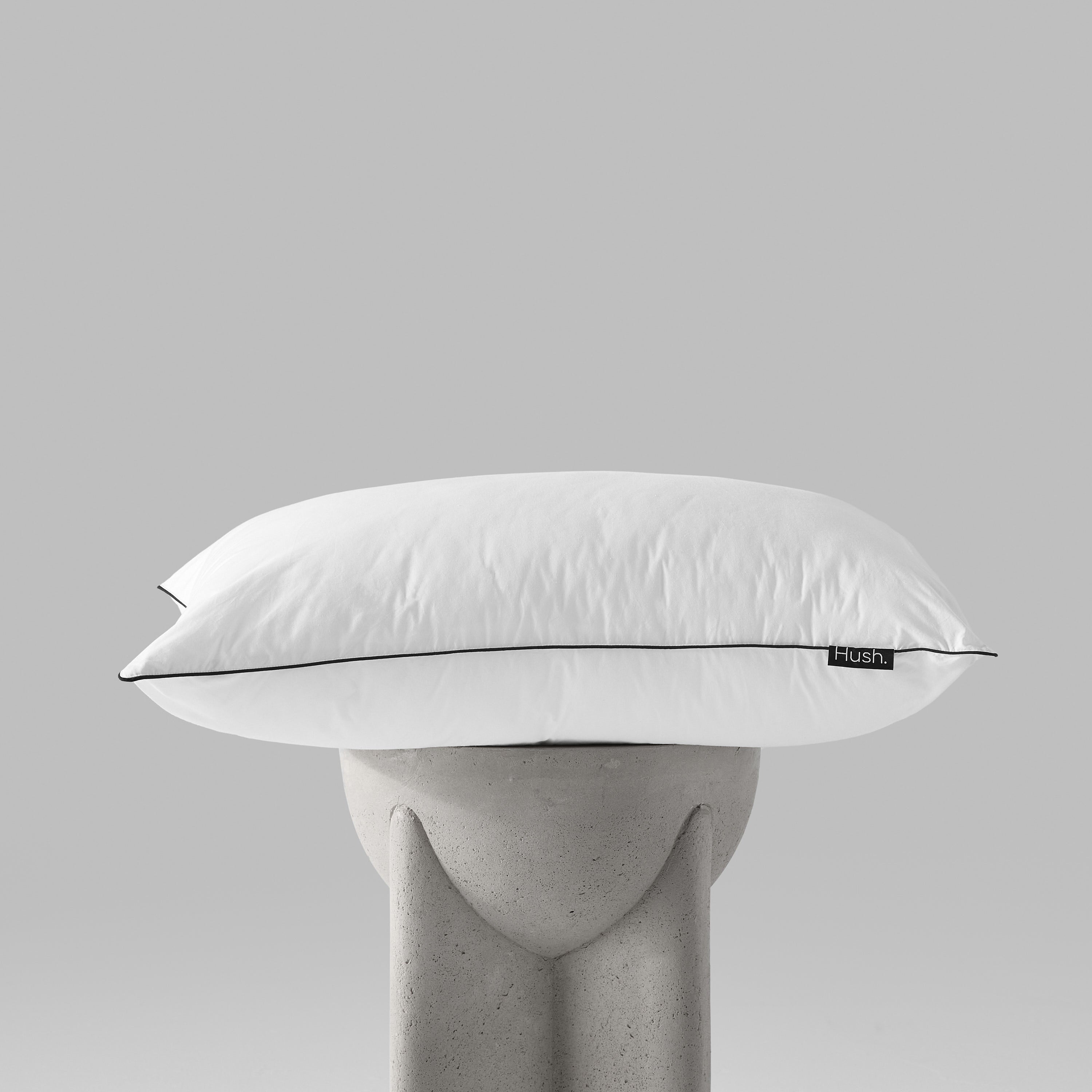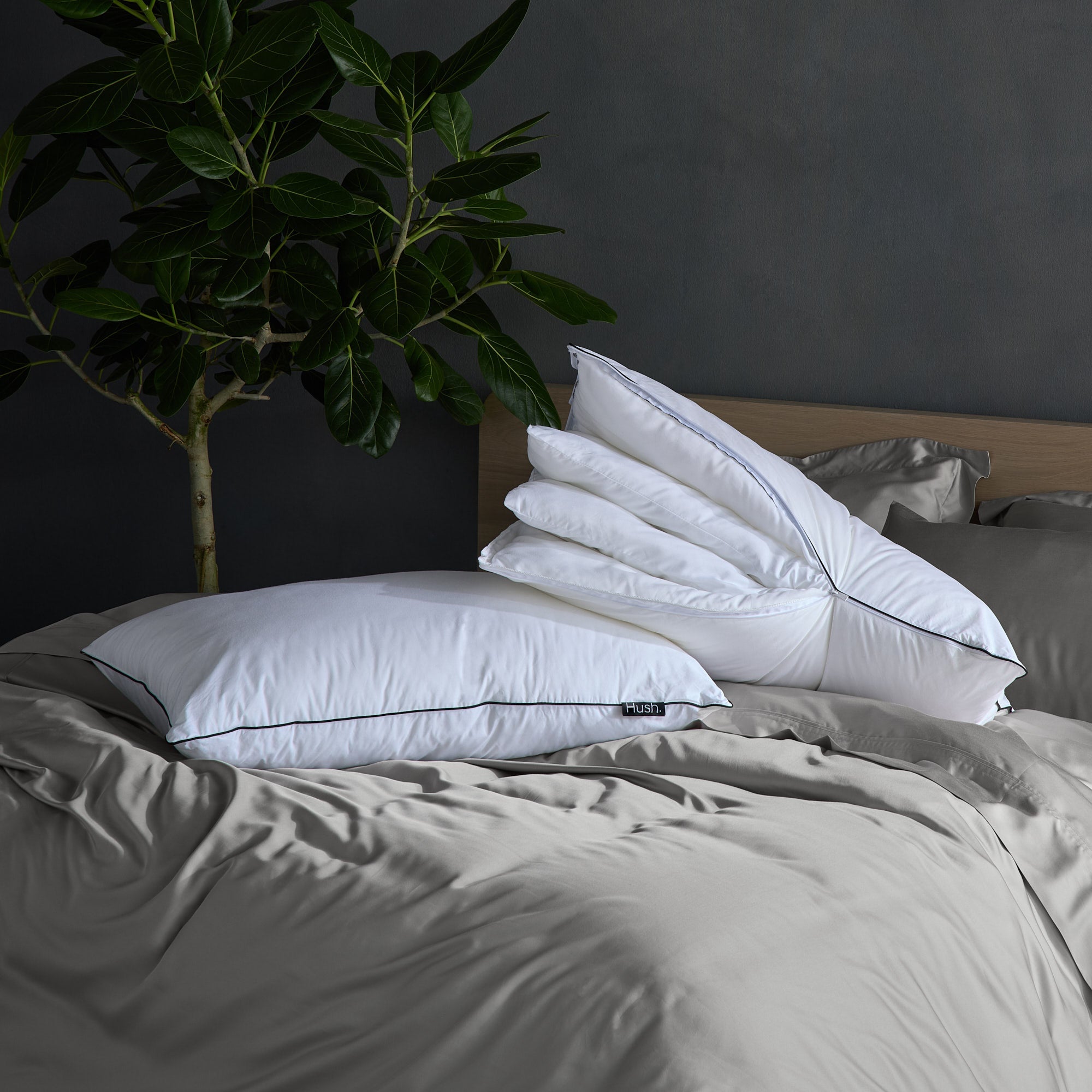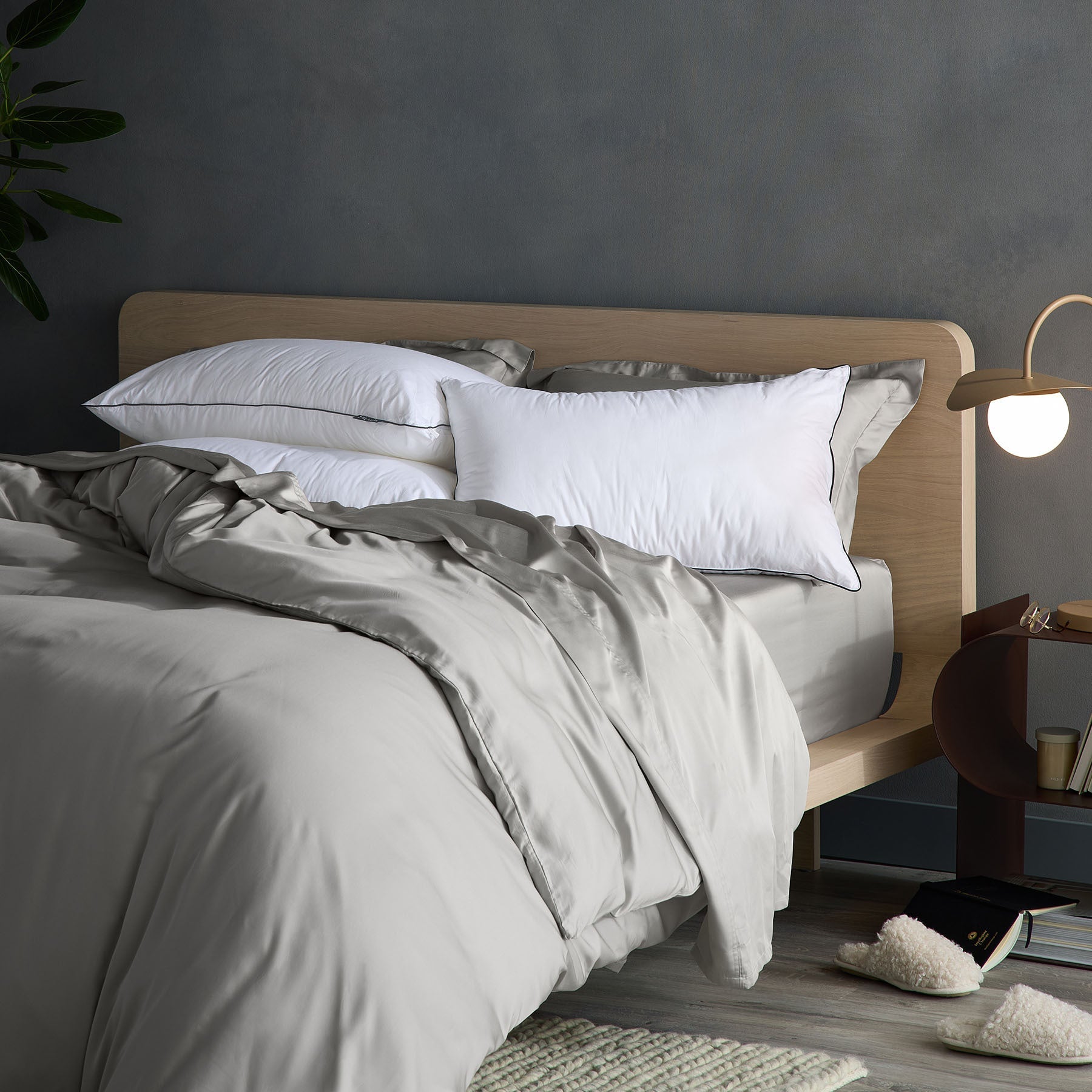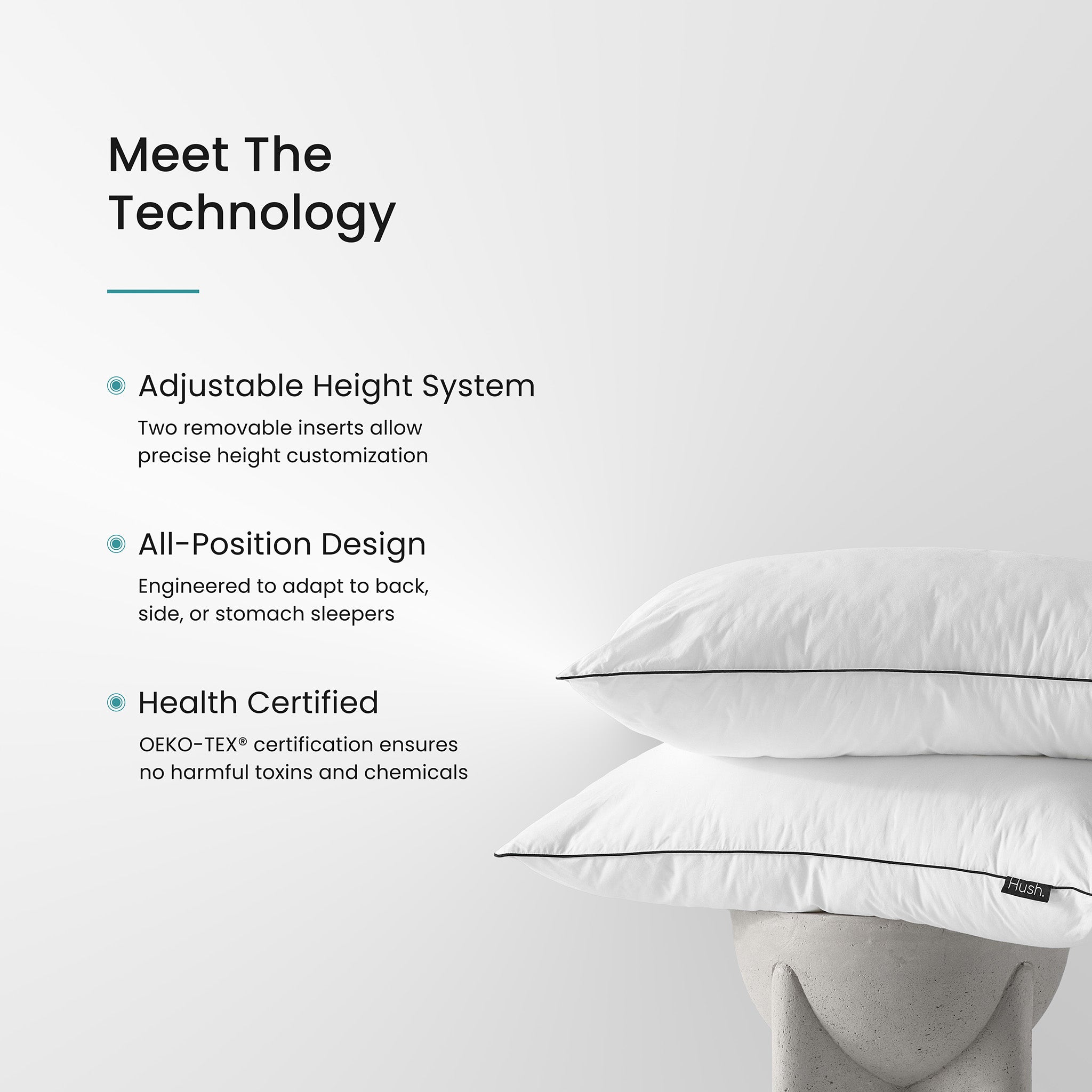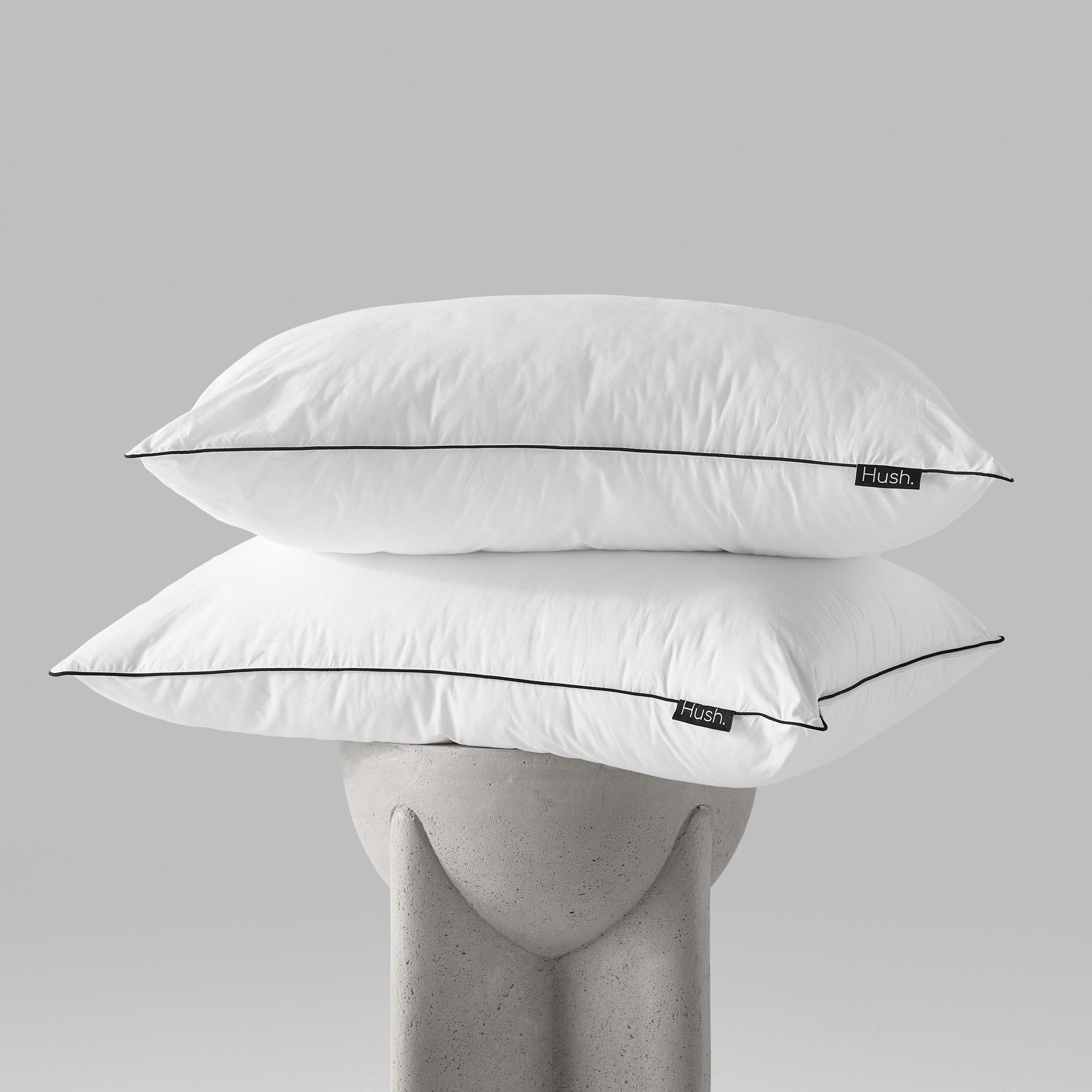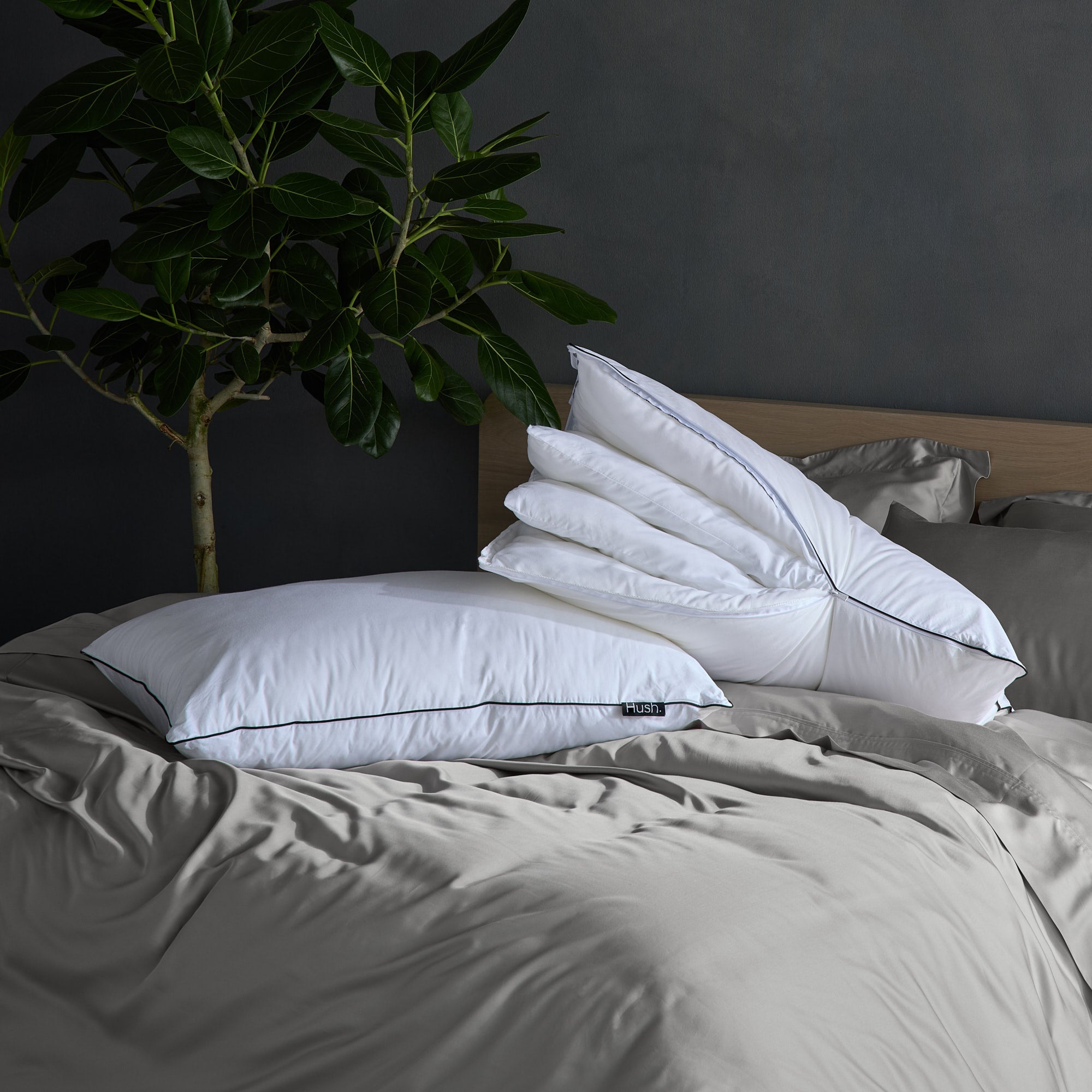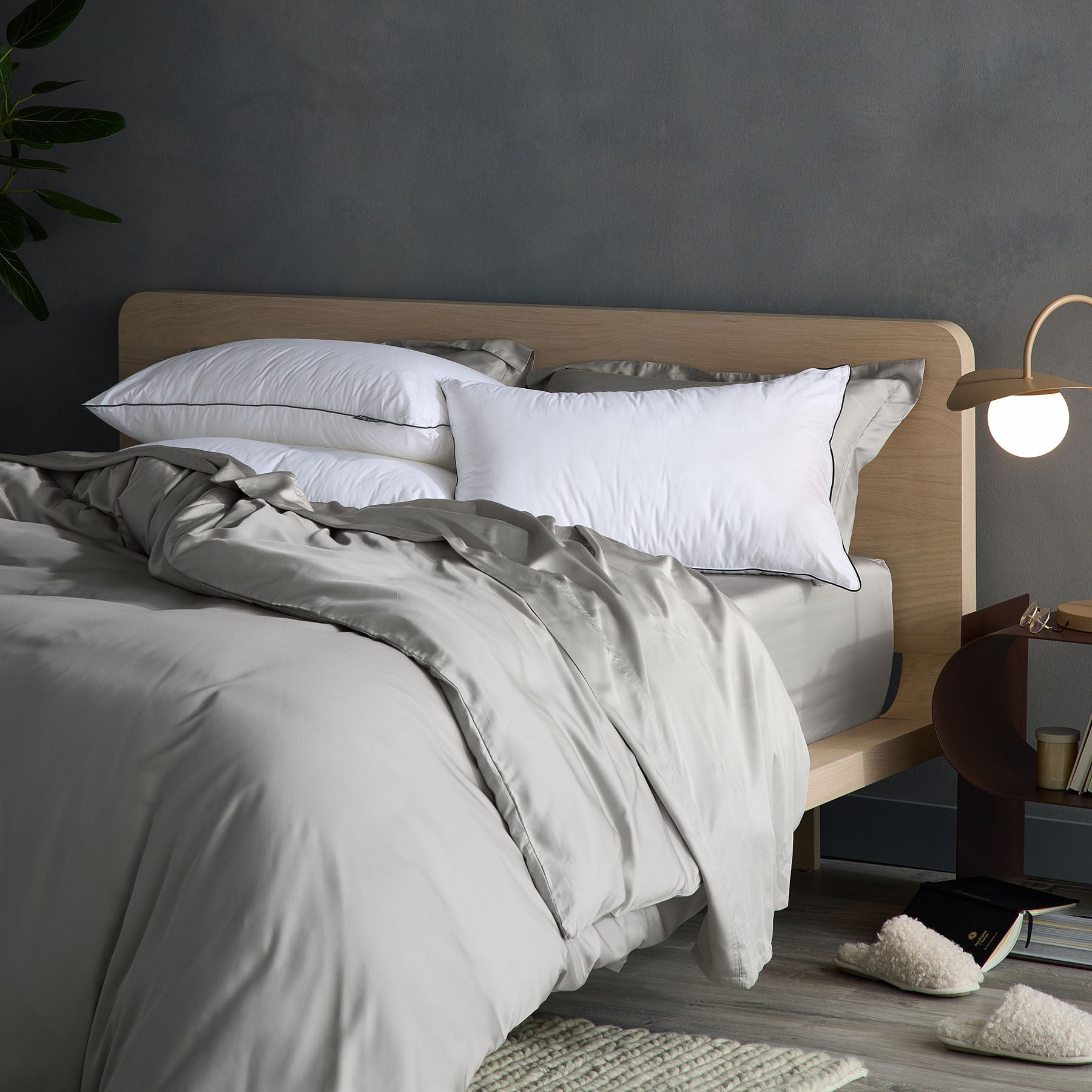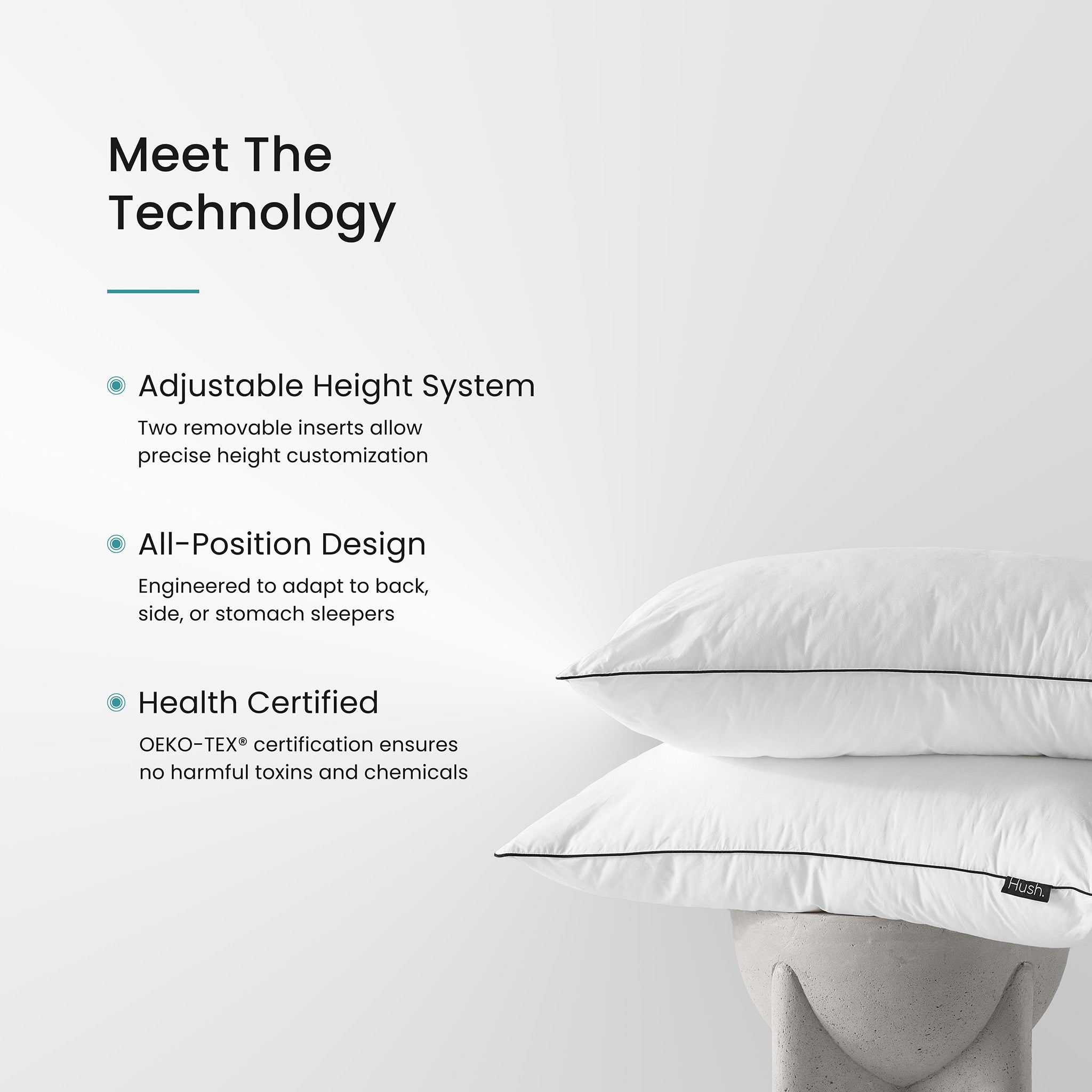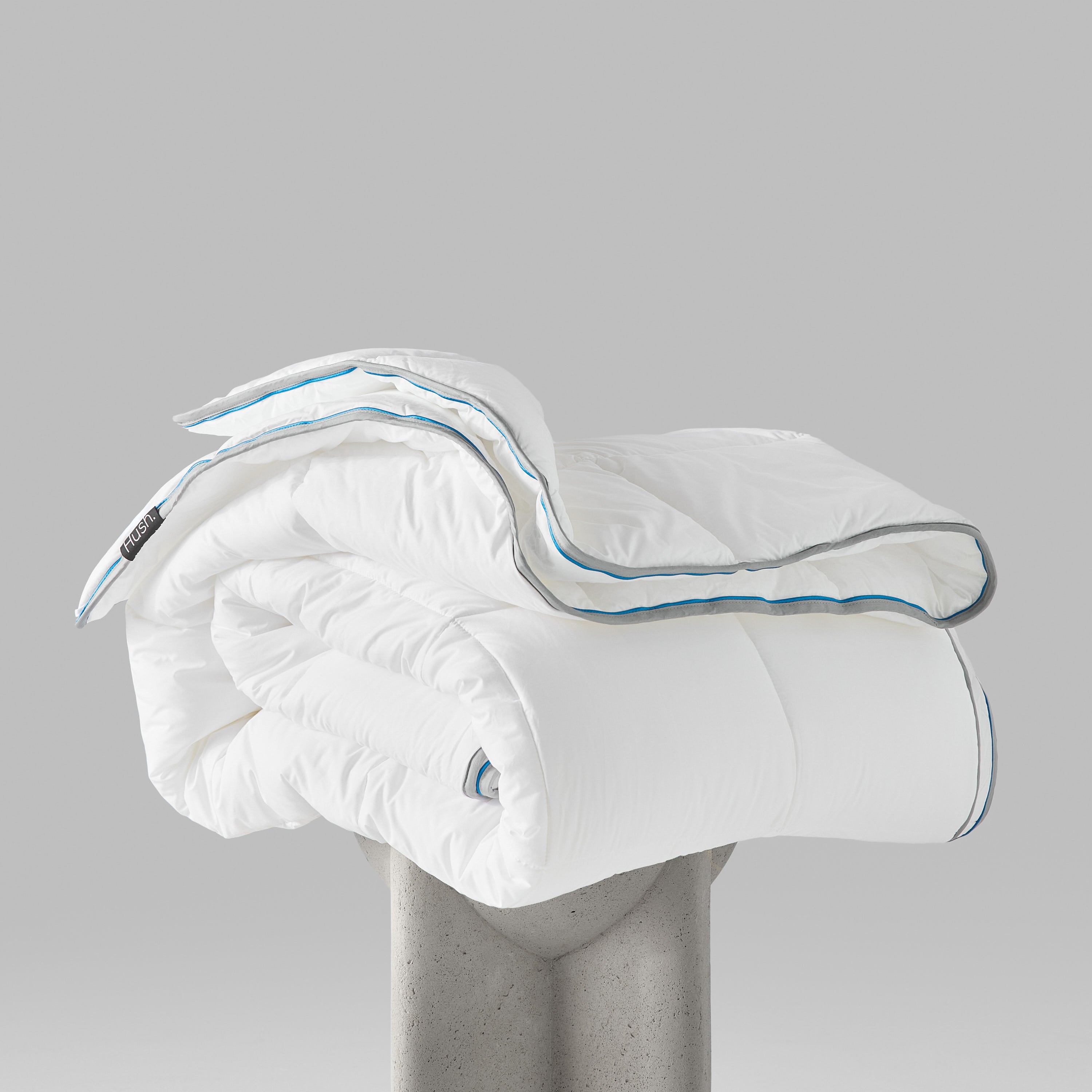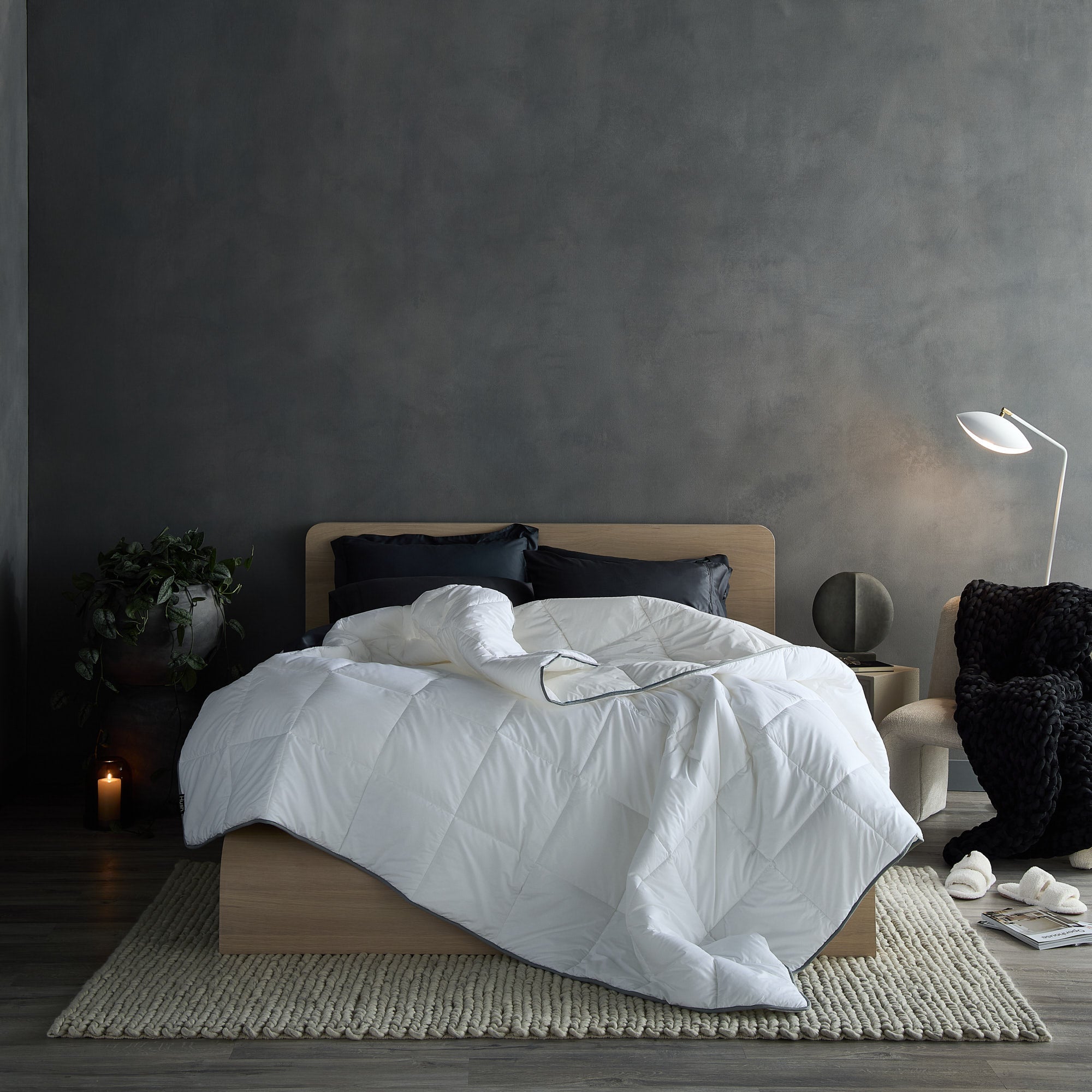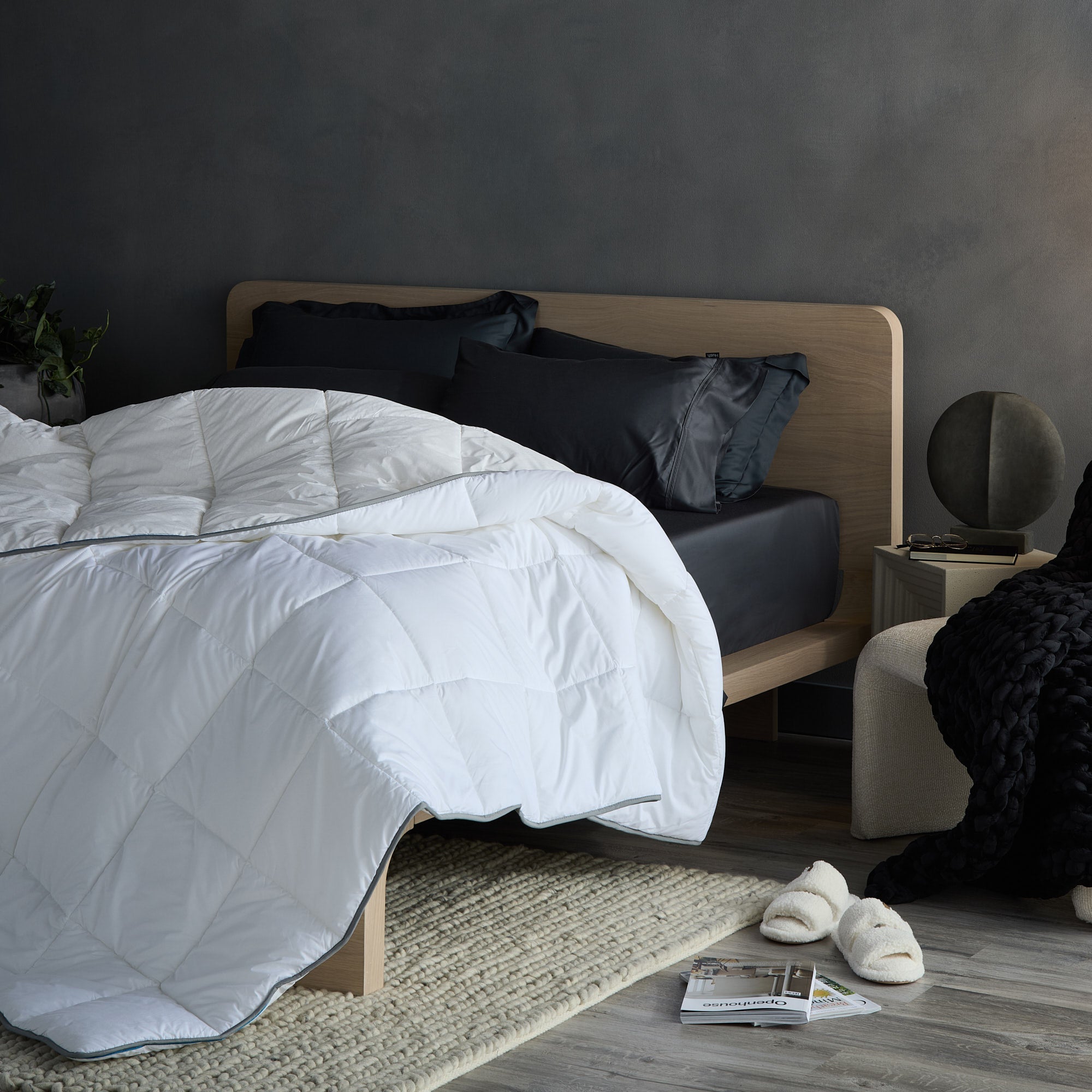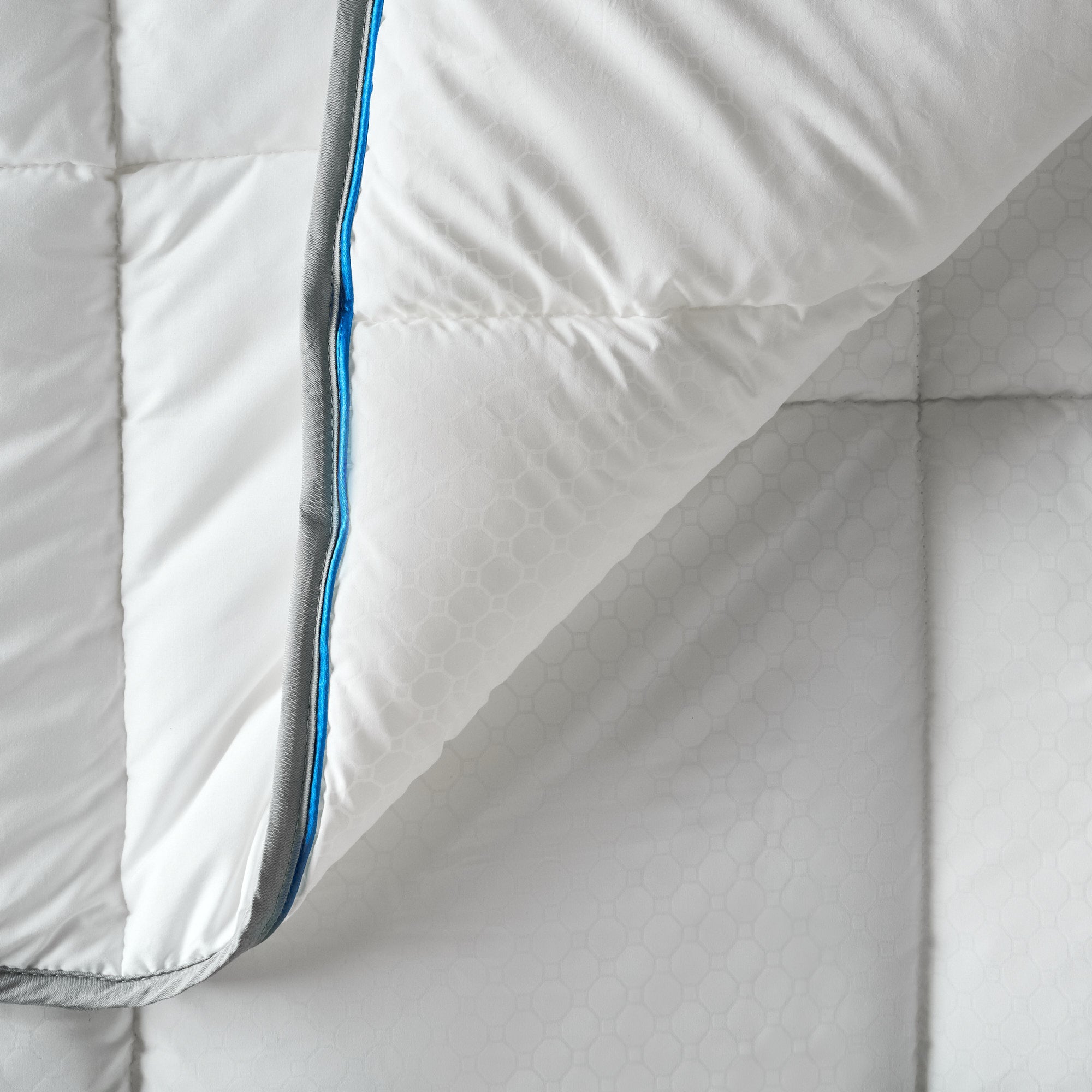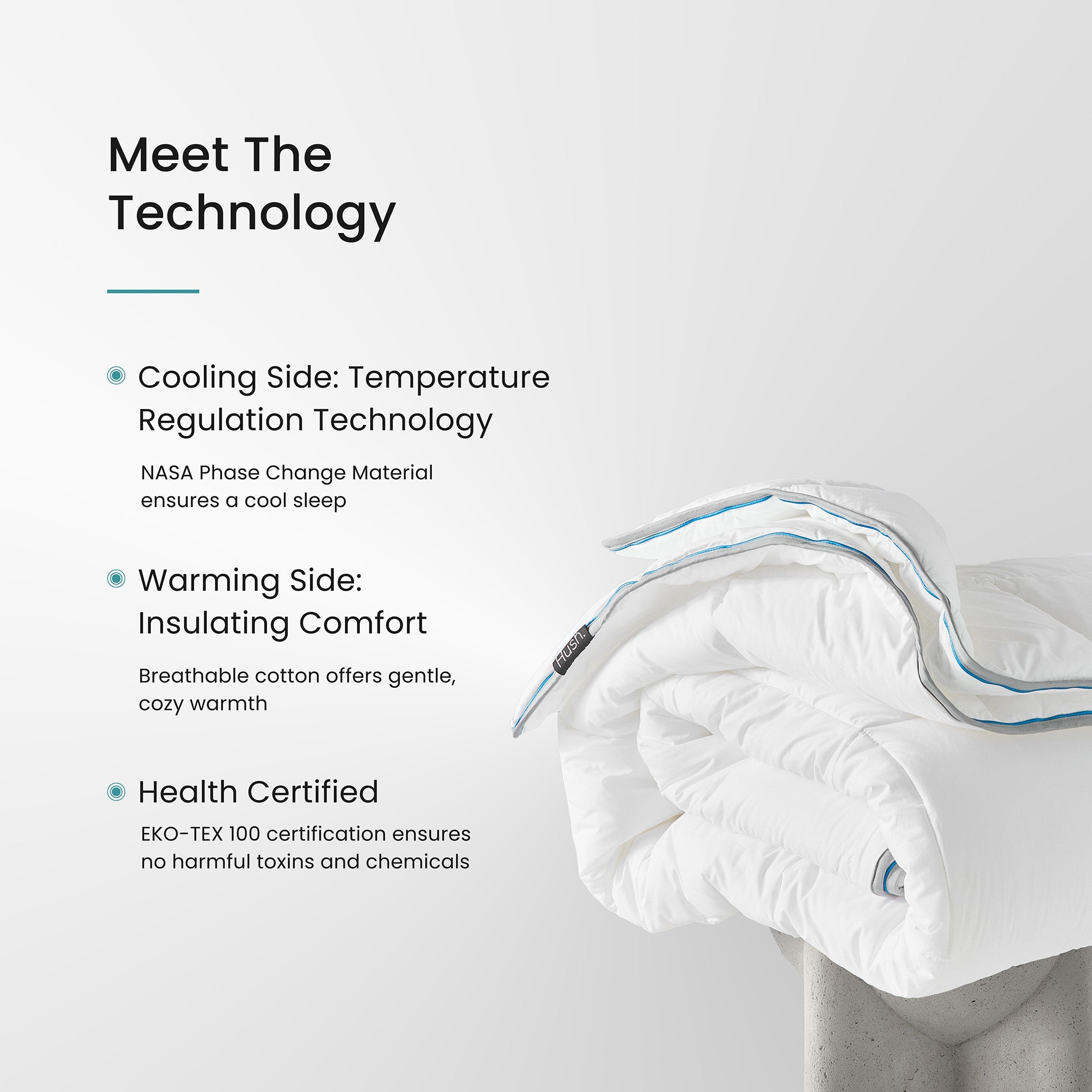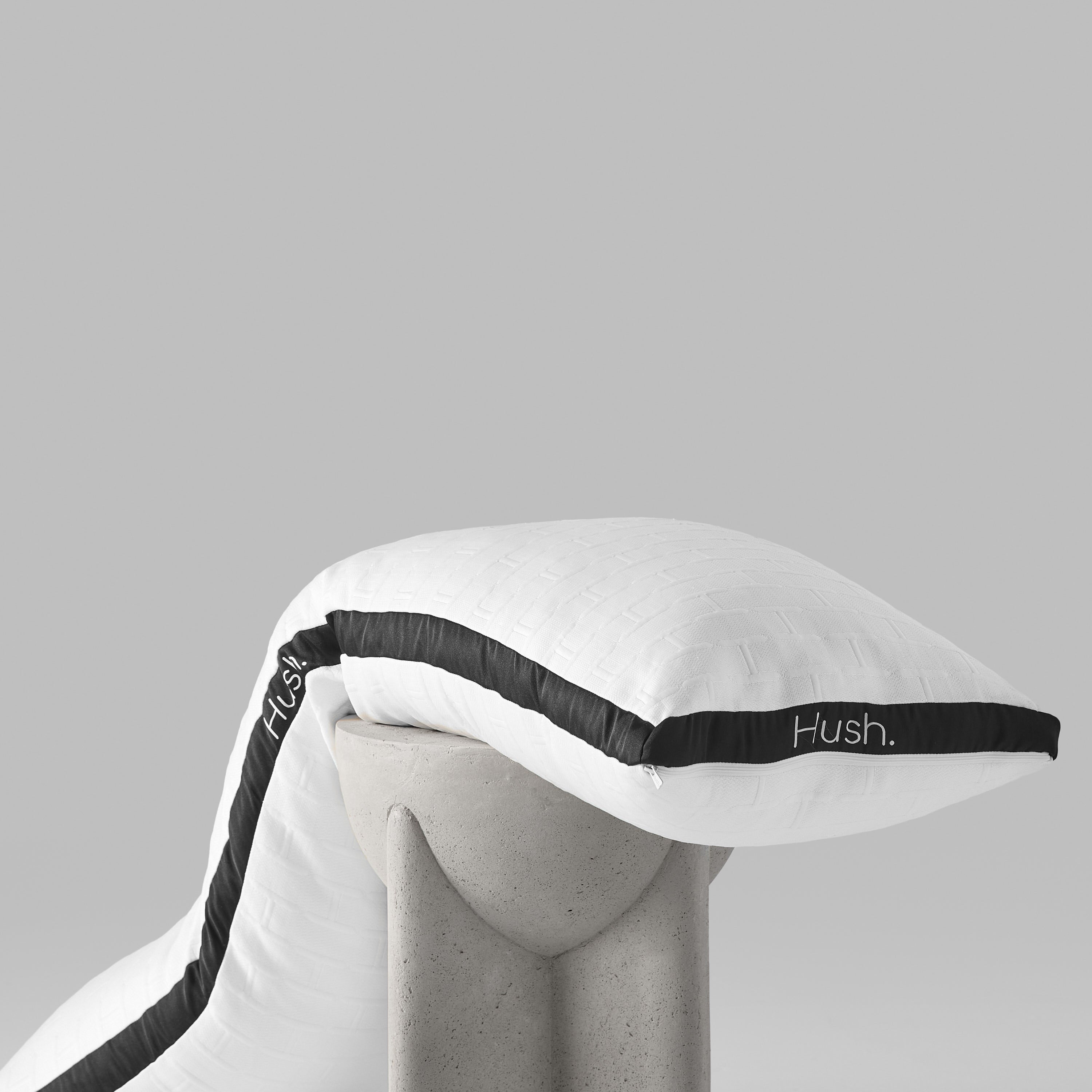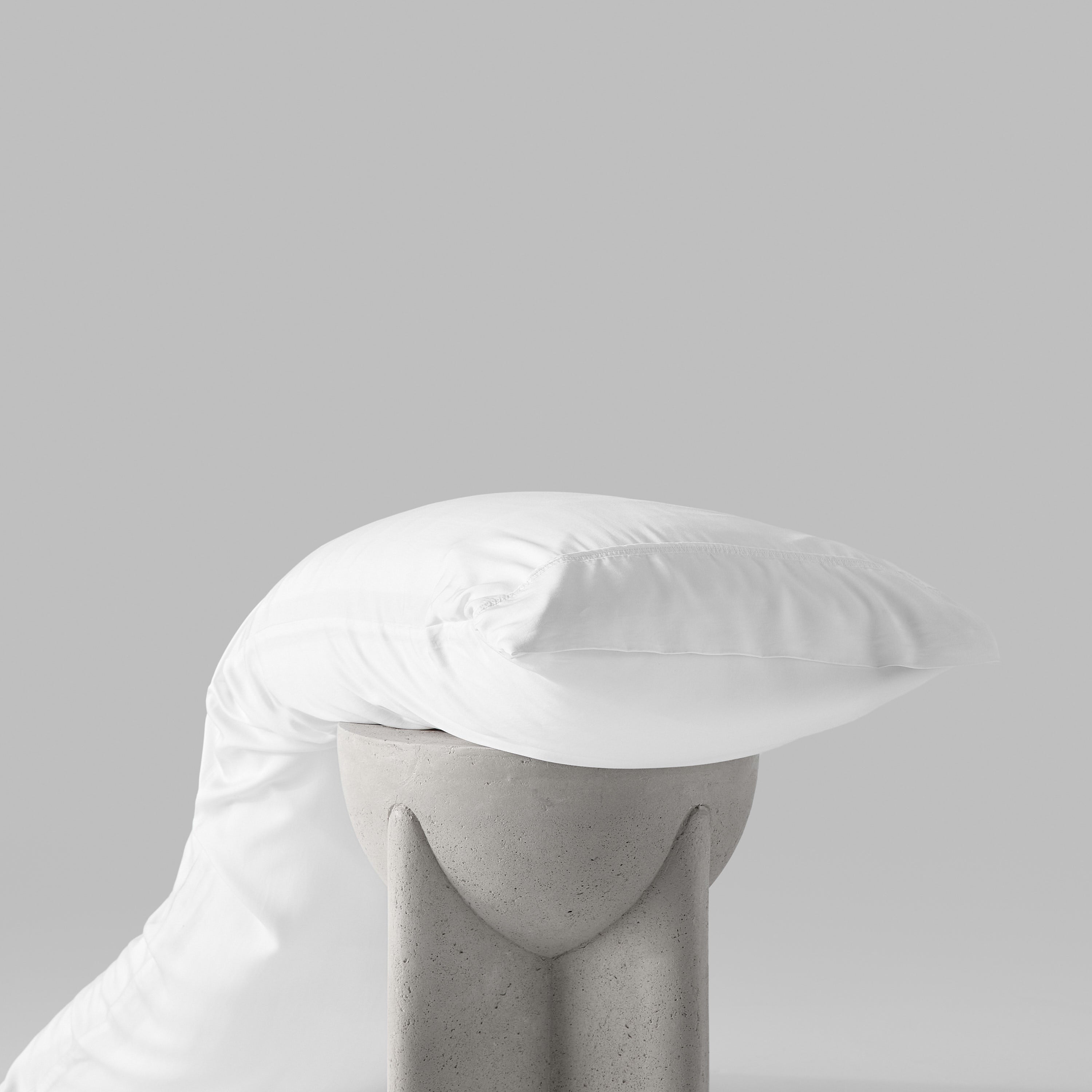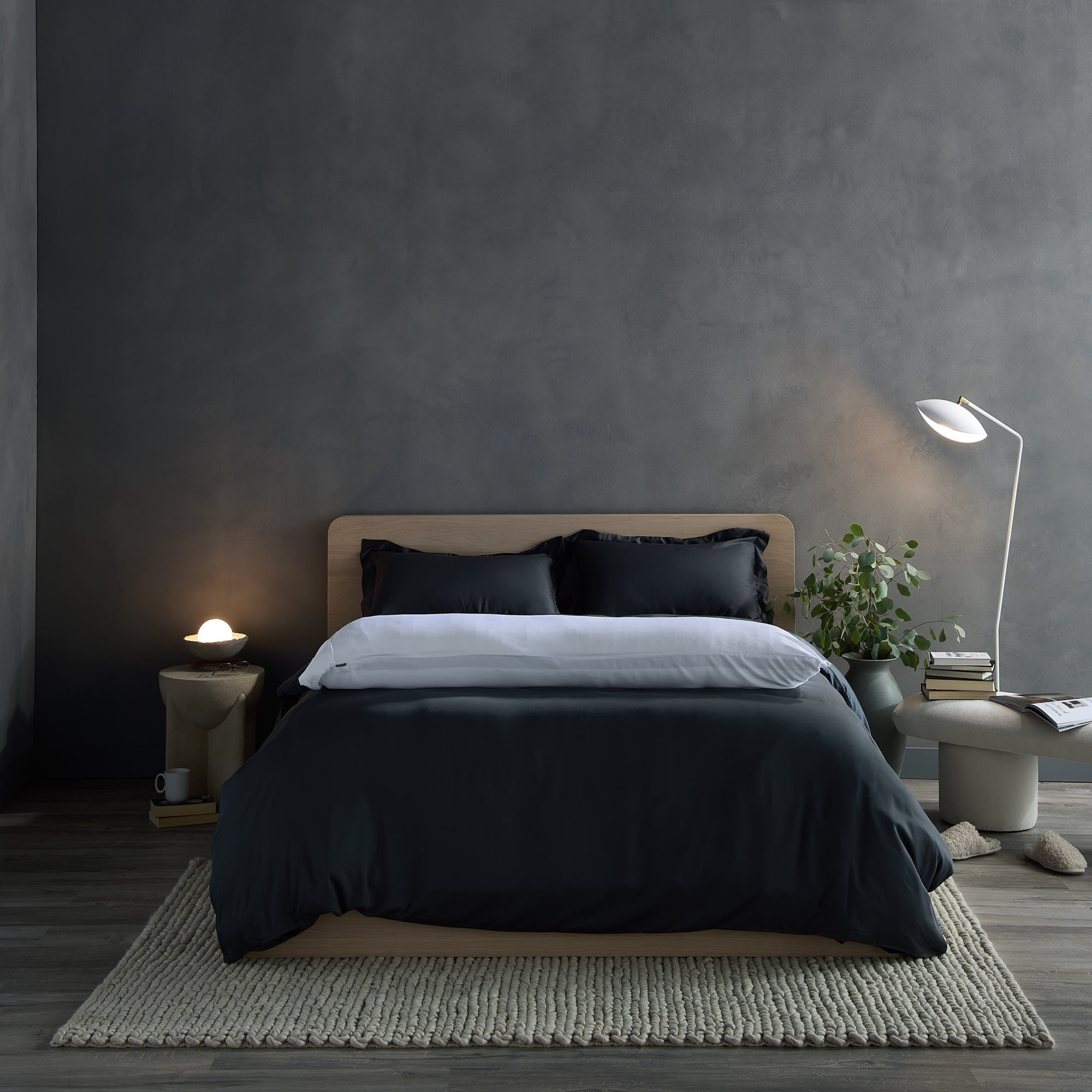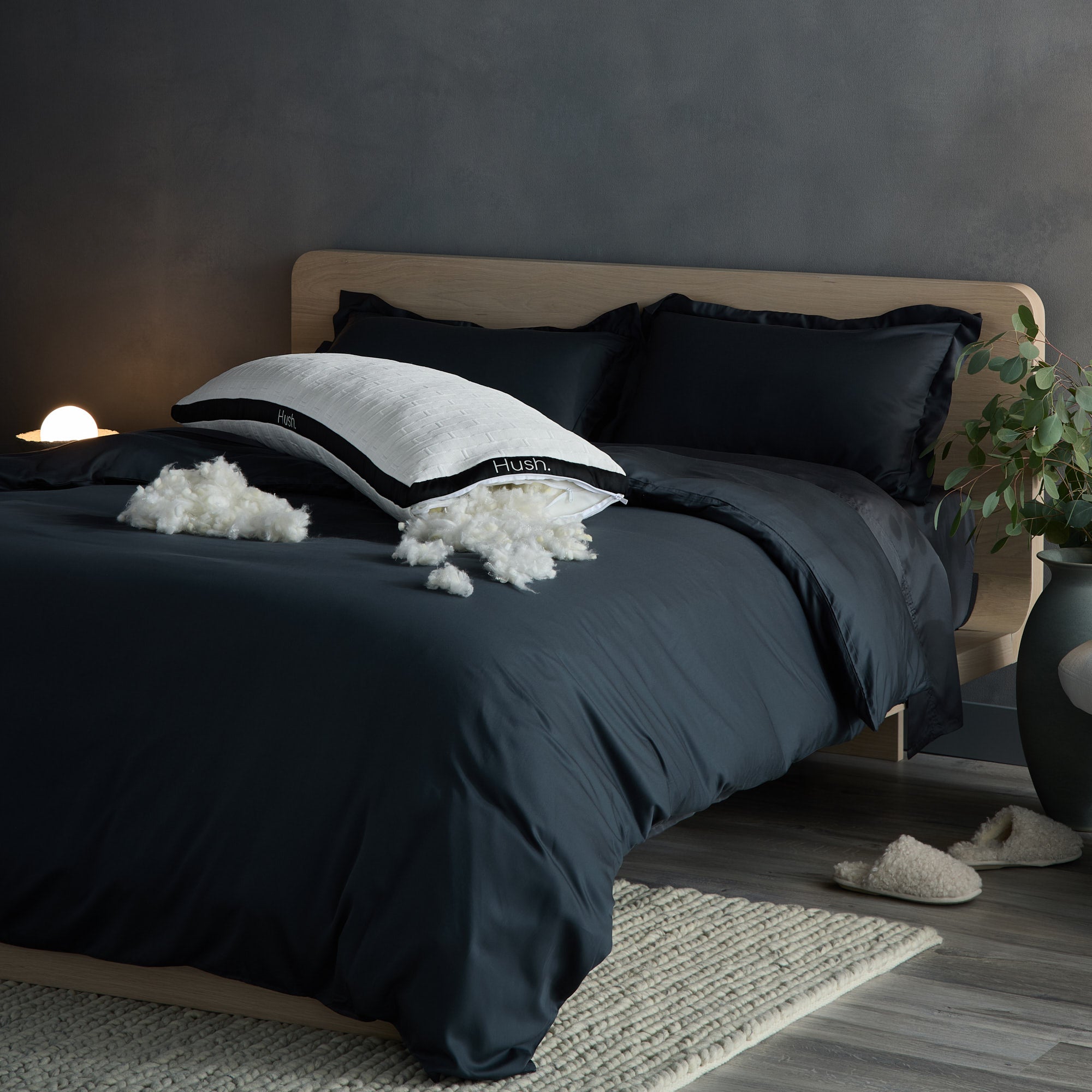Bamboo and linen are both increasingly popular natural fabrics for bed sheets. While cotton sheets remain the most widely available choice for bed sheets, bamboo and linen both have advantages over cotton in terms of comfort, durability, and environmental impact. But given that they have so much in common, it might be difficult to decide between the two.
We’re here to help you decide which of these fabrics is right for you. In this article, we’ll tell you about the unique features of bamboo and linen, then break down the differences between linen vs. bamboo in a detailed comparison.
At a glance:
Bamboo Sheets: Cool, Soft, and Luxurious

Bamboo is a natural fiber known for its soft, luxurious feel. It’s made from (you guessed it!) the bamboo plant, a highly sustainable and renewable resource. Bamboo requires minimal water and zero pesticides to grow, and it grows incredibly fast. What’s more, it actually improves the soil quality in the areas it grows. The same unfortunately can’t be said of linen or cotton.
While bamboo bedding tends to be incredibly soft, not all bamboo sheets are created equal. Some mix the bamboo fibers with other fabrics (like cotton) in order to cut costs and produce cheaper sheets, but the quality of such sheets doesn’t compare to pure bamboo sheets. And even pure bamboo sheets differ in terms of their feel.
Let’s take our Hush bamboo sheets for example: Not only do we use pure viscose bamboo, but our unique manufacturing process and sateen weave make the sheets feel much more luxurious than the thread count suggests. Our sheets have a thread count of 300, but they feel like sheets with a thread count of 1500! This also allows us to charge much less than what you’d expect to pay for such luxurious sheets.
Linen Sheets: Breathable and Absorbent

Linen sheets are made from natural fibers from the flax plant. Linen bedding tends to be a little stiff when new, but it’s known for getting softer with each wash. It’s also very lightweight, and it often doesn’t have a thread count measure. Instead, linen bedding is typically assigned a weight in order to give you a sense of how tightly woven the fabric is.
This is because linen fibers are much thicker than those of most other fabrics. This translates to a lower thread count, but because the fibers are so thick, linen sheets will have a very different feel than, say, cotton sheets with a similarly low thread count. So, thread count just isn’t a very reliable measure for linen sheets.
Linen fabric is highly absorbent and not particularly water resistant, so it may not be the best choice for those who tend to sweat in their sleep. However, like bamboo, it does have some cooling properties. Linen is also environmentally-friendly, as flax plants absorb a lot of carbon and turn it into oxygen as they grow (similar to bamboo plants).
Linen vs Bamboo Sheets

While both bamboo and linen are among the best materials for bed sheets you can buy, they have some important differences. In this section, we’ll compare bamboo and linen sheets in 6 categories: comfort, durability, bacteria resistance, temperature, water resistance, and environmental impact.
Comfort
Where comfort is concerned, bamboo generally beats linen. While linen bed sheets become softer over time, bamboo bed sheets are super soft and silky smooth from the moment you first try them. Meanwhile, linen sheets are often described as having a crisp, textured feel, even as they become softer. Bamboo is also a superior choice for those with sensitive skin or hair.
Of course, everyone has different preferences when it comes to comfort, so this is really a matter of personal taste. People who prefer a silky texture will likely prefer bamboo, while those who like fabrics that are more textured might want to try linen.
Durability
Both linen and bamboo bed sheets are known for their durability, meaning the fabric is strong and long-lasting. Both fabrics are also resistant to shedding and pilling, especially bamboo: One of its major advantages is that bamboo fabric generally doesn’t pill.
However, both sheets need to be properly cared for in order for them to last, and to keep all their beneficial properties. If you wash them incorrectly, they may become damaged and won’t last as long. Both fabrics should be washed on a gentle cycle with mild detergent free of harsh chemicals.
Bamboo tends to be a little more durable and long-lasting than linen, but it also has stricter requirements when it comes to washing and maintenance. So, if you want a more durable fabric, go with bamboo, but if you want something easier to care for, try linen.
And of course, always make sure you follow the care instructions on the label of your bed sheets. For more specific instructions on caring for bamboo sheets, check out our post on how to wash bamboo sheets.
Bacteria Resistance
If you’re looking for antibacterial sheets, both bamboo and linen are good choices. Both are considered to have antimicrobial properties, meaning they’ll resist the accumulation of bacteria as you sleep on them night after night. They’re also resistant to dust mites. What this means is that you won’t have to wash them as frequently as sheets that aren’t antimicrobial, as they’ll stay cleaner in between washes.
That said, bamboo is considered more antimicrobial than linen, so if this is a major concern for you, bamboo is the better choice. This is related to the fact that bamboo grows so quickly: It’s extremely fast-growing in part because it’s able to resist bacteria. In fact, by some accounts, it’s the fastest-growing plant on earth. Its natural antibacterial properties are also the reason bamboo doesn’t need pesticides to grow. This means bamboo is always organic.
Scientific evidence has confirmed the antimicrobial properties of bamboo. A study from The Journal of The Textile Institute compares bamboo vs cotton and shows that bamboo fabric is more antibacterial and moisture-wicking than cotton fabric. This suggests bamboo bed sheets are more resistant to bacteria than cotton bed sheets. Linen has also been shown to have antimicrobial properties, but bamboo is considered one of the most antibacterial fabrics.
Temperature

Bamboo and linen are both considered cooling bed sheets. Linen is considered extremely lightweight and breathable, but bamboo is also a highly breathable fabric. In fact, bamboo is usually the fabric of choice for hot sleepers, as it is both breathable and moisture-wicking, and it tends to feel cool to the touch.
Bamboo and linen are also both considered to have thermoregulating properties. This means they’ll cool you down if you’re hot, but they can also warm you up if you’re too cold. But linen is known more for its ability to warm you up than bamboo. Hot sleepers may prefer bamboo, whereas those who sleep on the colder end of the spectrum may be better off with linen.
Water Resistance
Linen fabric is considered highly absorbent, whereas bamboo fabric is very moisture-wicking. Linen has the capacity to absorb a lot of moisture before it begins to feel wet, but bamboo doesn’t just absorb moisture — it allows the moisture to evaporate.
So, while both fabrics can work well for those who tend to sweat at night and want to stay cool and dry, bamboo is the better choice for excessively sweaty sleepers (or anyone who likes to keep a glass of water on their nightstand).
Environmental Impact
Natural fabrics tend to make good choices for those who care about environmental impact. Bamboo and linen are both natural fabrics, and both are considered environmentally-friendly. Both are also fully biodegradable, as long as no synthetic dyes are used to color the sheets.
However, if environmental impact is a primary concern for you, bamboo is the better choice. It requires a less intensive manufacturing process than linen in order to turn it into fabric. And perhaps more importantly, the plant itself is much more sustainable. As we’ve already seen, it’s extremely fast-growing, requires minimal water and no pesticides, and improves soil quality as it grows.
Linen can also be a good choice for the environment though, especially if you choose a brand that makes organic linen sheets with a low-impact manufacturing process.
Shop Hush for the Best Bamboo Sheets on the Market

As we’ve seen, there are many factors to consider when trying to decide between linen and bamboo bed sheets. If you’re a hot sleeper, tend to sleep sweaty, want the softest sheets, or prefer something as environmentally-friendly as possible, choose bamboo. If you’re more of a cold sleeper or prefer a fabric that’s super lightweight or textured, go with linen.
If you decide to go with bamboo, there’s no better choice than Hush bamboo sheets. Thanks to our meticulous and proprietary manufacturing process, our bamboo sheets are even softer than most. We ensure the bamboo is harvested at just the right time of year for it to retain all of its natural properties and benefits, and we oversee every step of the process from the time it’s harvested until it becomes bed sheets.
Although our bamboo bed sheets feel extremely luxurious, they don’t have that luxury price tag. As we explained above, our unique manufacturing process allows us to produce high-quality sheets that feel super luxurious but cost a fraction of the price of typical luxury bed sheets.
And with our 100 night guarantee, you can try our bed sheets with total confidence, knowing you can always return them for a full refund within 100 days of purchase if you don’t end up loving them — no questions asked.
